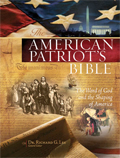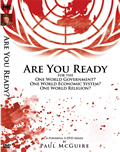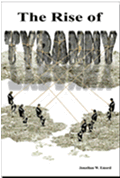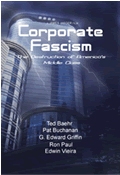NEW HAMPSHIRE OFFICIALLY RECOGNIZES JURY NULLIFICATION
By
Chuck Baldwin
August 9, 2012
NewsWithViews.com
One of the last (and very best) true investigative journalists is William Norman Grigg. I have admired his work for years. A report he recently wrote was covered by one of the very best (if not THE BEST) newspapers in the country, The Eau Claire (Wisconsin) Journal. Grigg writes, "When New Hampshire Governor John Lynch signed HB 146 into law on June 18, the Granite State became the first in the nation to enact a measure explicitly recognizing and protecting the indispensable right of jury nullification.
"New Hampshire's jury nullification law reads, in relevant part: 'In all criminal proceedings the court shall permit the defense to inform the jury of its right to judge the facts and the application of the law in relation to the facts in controversy.'
"There is nothing novel about the principle and practice of jury nullification, which dictates that citizen juries have the right and authority to rule both on the facts of a case, and the validity of a given law. This is widely recognized in judicial precedents in both American history and in Anglo-Saxon common law dating back to the Magna Carta (or earlier). At the time of the American founding it was well and widely understood that the power of citizen juries--both grand and petit--was plenary, and that their chief function was to force the government to prove its case against a defendant--and the validity of the law in question."
Grigg also writes, "The fact that the right to a trial by a jury of one's peers, which is supposedly sacrosanct, has become all but extinct illustrates the extent to which the U.S. 'justice' system has become Sovietized."
See Grigg's report in the Eau Claire Journal (you must subscribe).
When one wants to discuss the particular pillars protecting liberty, jury nullification must be ranked near the top of the list. Trial by jury should be regarded as one of America's most precious and sacred rights. Rightly did America's founders enshrine the right of trial by jury in Article VII of the Bill of Rights. I encourage readers to read all of Will Grigg's report mentioned above, as he very astutely describes the manner in which today's judges and prosecutors have virtually expunged the true meaning of--and have taken the teeth out of--a jury trial.
Yet, the right of a citizen jury to sit in judgment--not only of the one accused of a crime, but also of the law that accused him--is supremely important to the survival of a free republic. And as Grigg properly notes, this doctrine of law and jurisprudence was commonly understood by America's founders--and by many subsequent generations.
First of all, the right to a trial by one's "peers" is, all by itself, a sacred doctrine with almost no meaning to modern jurists. One of America's most influential attorneys at the time of America's founding was none other than Patrick Henry of Virginia. He said this about the right to a trial by one's peers: "By the bill of rights of England, a subject has a right to a trial by his peers. What is meant by his peers? Those who reside near him, his neighbors, and who are well acquainted with his character and situation in life." (Elliot, The Debates in The Several State Conventions on the Adoption of the Federal Constitution)
Secondly, the rights and power of a citizen jury is also mostly lost in modern courts. Such was not the case in Colonial America. John Jay, America's first US Supreme Court Chief Justice said, "The jury has a right to judge both the law as well as the fact in controversy." Samuel Chase, signer of the Declaration of Independence and a US Supreme Court justice said, "The jury has the right to determine both the law and the facts."
As late as 1902, US Supreme Court justice Oliver Wendell Holmes said, "The jury has the power to bring a verdict in the teeth of both law and fact." Even later, in 1941, US Supreme Court justice Harlan Stone said, "The law itself is on trial quite as much as the cause which is to be decided."
And, of course, earlier courts have consistently ruled that unconstitutional laws have no merit and citizens are under no obligation to submit to them. The famous Marbury vs. Madison decision in 1803 determined that "All laws which are repugnant to the Constitution are null and void." Other court decisions agreed.
In Miranda vs. Arizona, the court ruled, "Where rights secured by the Constitution are involved, there can be no rule making or legislation which would abrogate them." In Norton vs. Shelby County, the court decided, "An unconstitutional act is not law; it confers no rights; it imposes no duties; affords no protection; it creates no office; it is, in legal contemplation, as inoperative as though it had never been passed."
On the other hand, modern courts have all but eviscerated the time-tested and honored tradition of the right of citizen juries to sit in judgment of the law. Judges do everything in their power to dissuade juries from exercising their right to overturn prosecutions that are based on unjust and unconstitutional laws.
In the above-mentioned report, Will Grigg illustrates how juries are able to protect people from unjust prosecution: in Houston, Texas, police found a man in possession of less than a gram of cocaine--an amount equivalent to roughly half a sugar packet. He was arrested and charged with felony narcotics possession. According to Grigg, "The jury eventually acquitted [the accused] of the charge." Jurors later said that the evidence against the man was "weak," but the defense attorney was a little more blunt. He said that "[jurors] weren't going to make somebody a felon and ruin their lives over a gram of cocaine."
Grigg notes, too, that, two years ago, right here in my home State of Montana, a jury refused to convict a man for marijuana possession. Grigg concludes his report by saying, "Hopefully this kind of principled rebellion will become a nationwide epidemic."
| Subscribe to the NewsWithViews Daily News Alerts! |
Neither Will Grigg nor I are advocating for violent criminals to escape justice. But the truth is if we emptied America's prisons of all of the inmates who are incarcerated for "crimes" in which no one--not a single person--was harmed, we could close a sizeable percentage of prisons in this country. And one of the chief reasons for the explosion of incarcerations in this country must be laid at the doorstep of uninformed and ignorant juries who allow judges and prosecutors to blind them regarding their responsibility to protect their neighbors and fellow citizens from unjust, unconstitutional laws. And there is no greater abuse of justice to be found today than in federal drug laws--especially the marijuana laws. But, alas, that is a subject for a later day.
For now, the great State of New Hampshire officially recognizes jury nullification. In the interest of the preservation of freedom in America, the rest of the "several states" should quickly follow suit.
• If you appreciate this column and want to help me distribute these editorial opinions to an ever-growing audience, donations may now be made by credit card, check, or Money Order. Use this link.
And please visit my web site for past columns and much more.
� 2012 Chuck Baldwin - All Rights Reserved


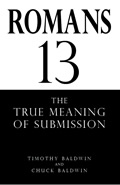





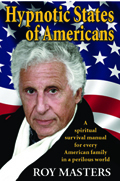




 Share
This Article
Share
This Article
